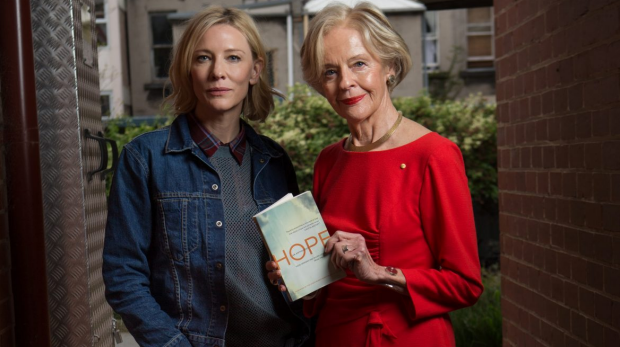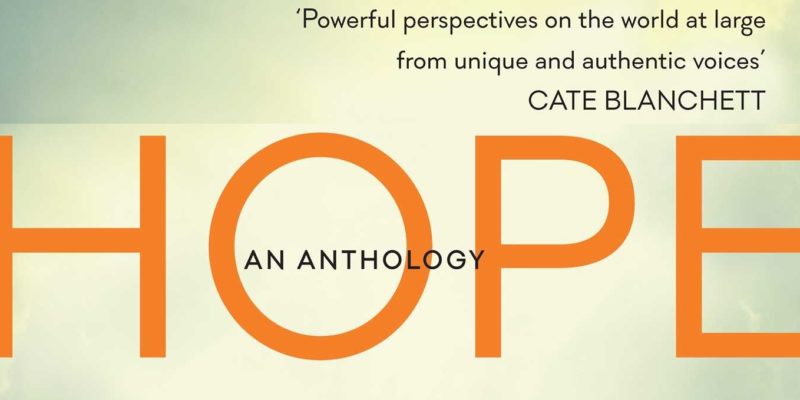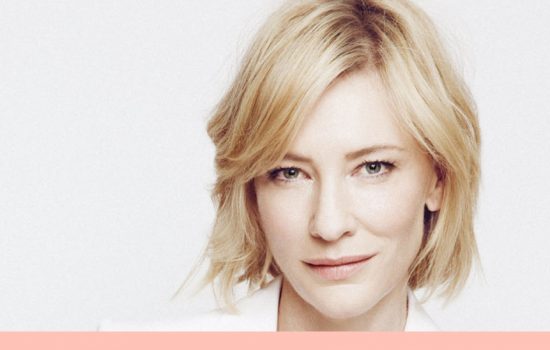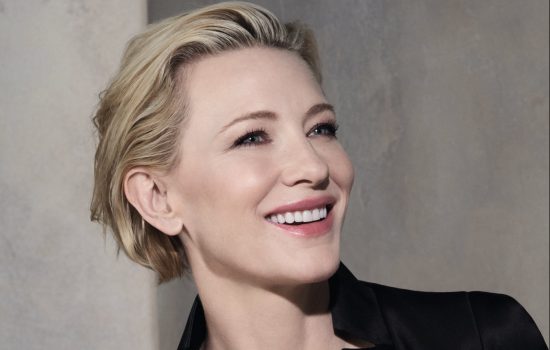Hello everyone!
Cate Blanchett was among the judges for the Brotherhood of St Laurence’s first literary award, The Hope Prize. The result is Hope: An Anthology, out on November 9. Cate and former governor general Quentin Bryce reflect on powerful new role in a new article for The Sydney Morning Herald. Enjoy the reading!

Cate Blanchett and Quentin Bryce were judges for the Brotherhood of St Laurence’s first literary award, The Hope Prize
It’s not often a story has the power to turn Cate Blanchett’s world upside down.
But it’s clear the Oscar-winning actress is deeply moved as she reflects on the tales of homelessness, isolation and despair she encountered as a judge for the Brotherhood of St Laurence’s first literary award, The Hope Prize.
Designed to encourage writing that transcends stereotypes of poverty, the 10 shortlisted stories evoke a powerful image of what it means to be displaced in modern Australia.Publisher Simon & Schuster Australia and bookseller Readings decided the works from amateur writers were so powerful, they had to be turned into a book. The result is Hope: An Anthology, out on November 9.
Selected from more than 1000 entries, The Hope Prize’s winning story, Better Homes and Gardens, is narrated by a young girl who lives in her father’s car with her little sister and describes her trying to stay afloat at school.“I suddenly saw the world from an entirely different perspective,” says Blanchett, who judged the prize along with former governor general Quentin Bryce and The Secret River author Kate Grenville.
“It’s language and perspective on the world that in middle class society we take for granted. I felt like my entire world had been turned upside down.”
Another story centres on an unemployed labourer who befriends a Sri Lankan bus driver after being given a grim health prognosis.
One heartbreaking tale written by a teenage author tells of a student falling behind in high school as she becomes the sole carer for her blind father.But instead of confirming stereotypes of what it means to be marginalised and experiencing poverty, the stories are uplifting and, in the words of Blanchett, “utterly illuminating”.
“In a lot of them, there was a sense that you were invited into a very private, undisclosed, interior monologue. Their situations are all so tenuous.”
Quentin Bryce says the stories gave her a profound sense of the isolation so many Australians endure every day.
“I was reading those stories again and thinking about what this publication is about; about poverty and disadvantage and the compassion you really feel very deeply. It gives you an awareness of how easily life can change.”
After a career in public office, Bryce says it’s still difficult to engage people on pervasive issues such as homelessness and domestic violence.
“It’s very easy for us to turn our heads away from things that we don’t want to talk about. I see that in the work I’m doing with domestic violence. Nobody wants to talk to me.”
“They turn away and that’s why this project is so important. It’s empowering, it’s beautiful writing.
“There are so many important things in it, so it’s really a privilege to be asked to be involved because it stops us in our lives. We’ve got so busy and self-centred and materialistic and these stories say ‘look around you’.”
Blanchett is a firm believer that great works of art and literature can be catalysts for change.
“All great literature, all great works of cinema, painting, photography – whatever – you feel ambushed by it in some way. It describes an experience other than your own.
“Somewhere between the story and yourself, you are changed by it.
“So I think it’s very rare that you see a collection of short stories from the perspective of people who are refugees, asylum seekers or homeless, and I think the perspective has an incredible power to change.”
Hope: An Anthology is out November 9 and is available at Readings bookstores.
 Welcome to Cate Blanchett Fan, your prime resource for all things Cate Blanchett. Here you'll find all the latest news, pictures and information. You may know the Academy Award Winner from movies such as Elizabeth, Blue Jasmine, Carol, The Aviator, Lord of The Rings, Thor: Ragnarok, among many others. We hope you enjoy your stay and have fun!
Welcome to Cate Blanchett Fan, your prime resource for all things Cate Blanchett. Here you'll find all the latest news, pictures and information. You may know the Academy Award Winner from movies such as Elizabeth, Blue Jasmine, Carol, The Aviator, Lord of The Rings, Thor: Ragnarok, among many others. We hope you enjoy your stay and have fun! 




 A Manual for Cleaning Women (202?)
A Manual for Cleaning Women (202?) The Seagull (2025)
The Seagull (2025) Bozo Over Roses (2025)
Bozo Over Roses (2025) Black Bag (2025)
Black Bag (2025)  Father Mother Brother Sister (2025)
Father Mother Brother Sister (2025)  Disclaimer (2024)
Disclaimer (2024)  Rumours (2024)
Rumours (2024)  Borderlands (2024)
Borderlands (2024)  The New Boy (2023)
The New Boy (2023) 











